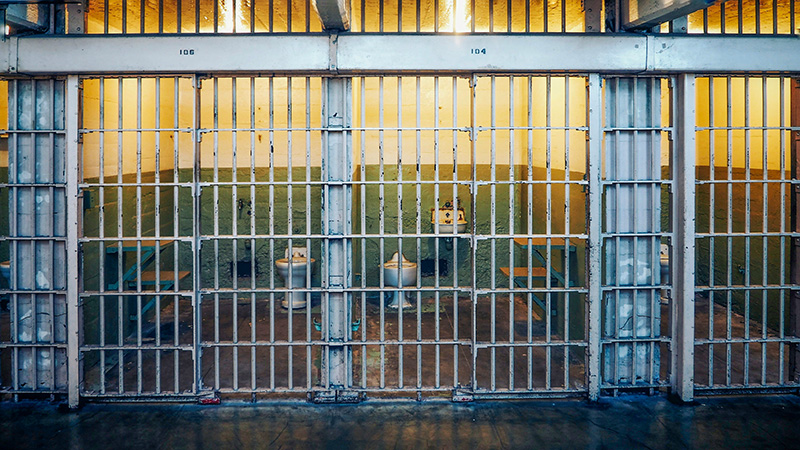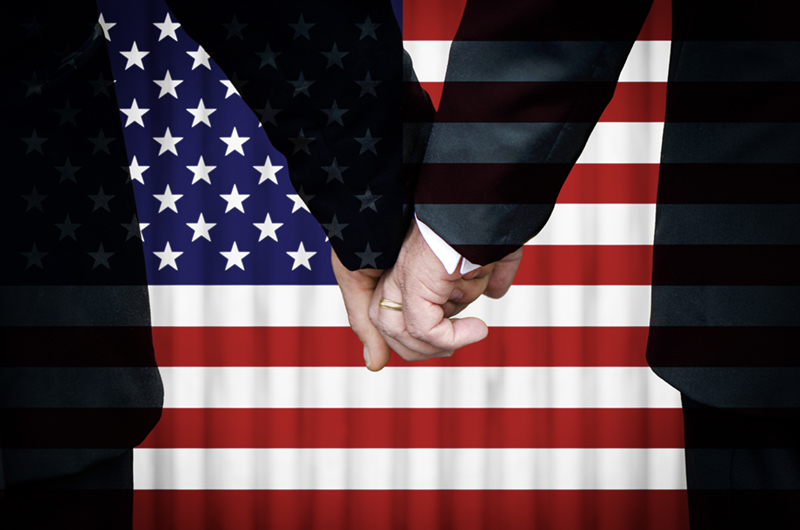Human Rights Watch urges Lebanon to ditch its law criminalizing gay sex
Calls come after military tribunal refuses to prosecute 4 service members charged with sodomy

Human Rights Watch is urging Lebanon to abolish a law that criminalizes same-sex relations after a top military prosecutor acquitted four service members accused of sodomy.
The group called the decision, which was publicized on April 1, a “positive development,” reports Al Jazeera News.
Article 534 of the country’s penal code punishes sexual relations deemed “contrary to nature” with up to one year in prison.
But civilian courts have either declined to prosecute cases or have outright acquitted people charged under the law. Monday’s decision marks the first time a military prosecutor has dismissed such charges.
On Saturday, Judge Peter Germanos cleared the four men of charges and declined to issue warrants for their arrest, according to the Daily Star, a Beirut-based daily newspaper.
Germanos told the newspaper that “sodomy is not punishable by law,” since Article 534 does not specify what “kind of relationship can be considered ‘contrary to nature.'”
The four service members have since been dismissed from their posts.
Neela Ghoshal, a senior researcher for LGBT rights at Human Rights Watch, noted that while LGBTQ rights groups have celebrated decisions not to prosecute or pursue charges against people under Article 534, such victories have only come about because of the discretion of individual judges and prosecutors.
“In civilian courts, it’s basically judges who are independently evaluating the law and determining that there’s no clear logic by which this law outlaws homosexual conduct,” Ghoshal told Metro Weekly in an interview. “And this view is not necessarily shared by parliament or the government writ-large. It’s basically individuals within the judiciary who are evaluating the law on its merits and raising questions about what something like ‘unnatural offenses’ even means.
“In a couple of cases it’s been acquittals, not just declining to prosecute. And the language in these judgements is strong. It’s basically said that homosexual sex happens, its natural and therefore we can convict people under a law banning ‘unnatural offenses,'” Ghoshal says “The judges who have issued these ruling have faces a lot of criticism, because there’s not a lot of support for calling on parliament to repeal the law.”
Ghoshal notes that there is a really strong LGBTQ rights movement in Lebanon, with four or five major organizations who have applied public pressure to call for the law’s repeal.
In last year’s elections, the Arab Foundation for Freedoms and Equality reached out to parliamentary candidates and asked them to take a stance on repealing the law — a political first.
Several candidates who expressed support for repeal were ultimately elected, though they remain outnumbered by a larger group of politicians who are unwilling to buck popular opinions opposing homosexuality.
Still, she says, repealing the law is important to protect the rights of sexual minorities, and because of the chilling effect that the law has on free speech and freedom of association.
“One of our concerns about the law is that despite these court rulings, people continue to get arrested. There is no clear system of precedent, so just because one court decides one way doesn’t mean another will,” says Ghoshal.
She says that the law is particularly used to target transgender people, and even though many are not ultimately prosecuted for violating Article 534, arrests and detentions at military checkpoints — where police can go through people’s phones searching for evidence of homosexuality or transgenderism if they believe the person is LGBTQ — are still common.
Ghoshal also notes that LGBTQ Syrian refugees, who have to regularly submit themselves to general security checks to update their documents, have also been targeted under the law. As such, it should be repealed.
“The other impact that this law has, while it remains on the books, is it’s also being used to shut down civil society organizing,” says Ghoshal. “So, for instance, Beirut Pride, or the NEDWA Conference that was organized last year that brought together activists from throughout the Middle East-North Africa region, are being shut down by the police, and their justification is that these activists are promoting ‘immoral or illegal behaviors.’
“That’s another reason why we consider it urgent to get this law off the books, or at least to have, in the meantime, a common understanding that this law does not actually refer to homosexual conduct, because it’s really important to keep that civil society space open, and it’s being increasingly closed, using this law as justification.”
Support Metro Weekly’s Journalism
These are challenging times for news organizations. And yet it’s crucial we stay active and provide vital resources and information to both our local readers and the world. So won’t you please take a moment and consider supporting Metro Weekly with a membership? For as little as $5 a month, you can help ensure Metro Weekly magazine and MetroWeekly.com remain free, viable resources as we provide the best, most diverse, culturally-resonant LGBTQ coverage in both the D.C. region and around the world. Memberships come with exclusive perks and discounts, your own personal digital delivery of each week’s magazine (and an archive), access to our Member's Lounge when it launches this fall, and exclusive members-only items like Metro Weekly Membership Mugs and Tote Bags! Check out all our membership levels here and please join us today!





























You must be logged in to post a comment.